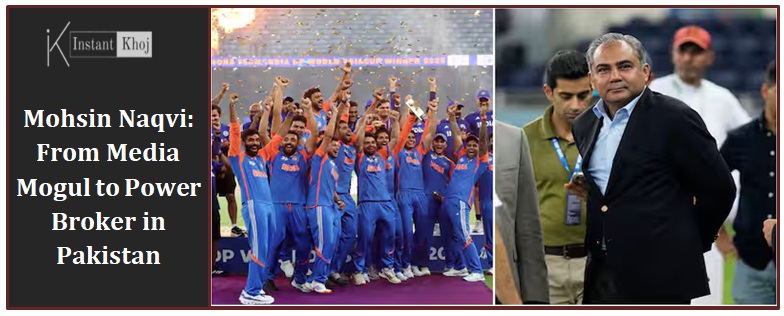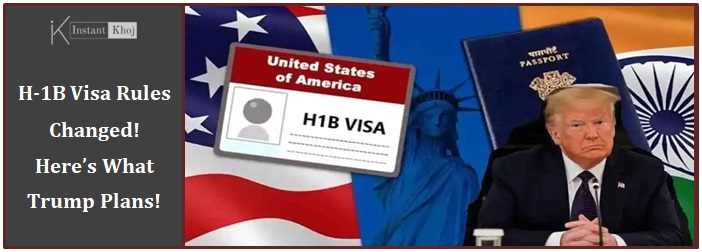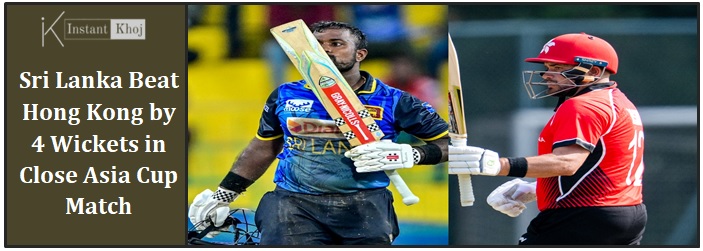In Pakistan’s complex interplay of politics, media, and sports governance, Mohsin Naqvistands out as one of the more controversial, dynamic, and influential personalities. Wearing multiple hats—as a politician, media proprietor, administrator, and cricket board chief—Naqvi’s trajectory offers insight into the evolving nexus between sports and state in South Asia.
Early Life and Education
Syed Mohsin Raza Naqvi was born on 28 October 1978 in Lahore, Punjab, Pakistan into a Punjabi‑Syed family with ancestral roots in Jhang.
Tragically, Naqvi was orphaned at a young age and was raised by his maternal uncle. His early schooling was at Crescent Model Higher Secondary Schoolin Lahore.
For higher studies, he attended Government College University (GCU), Lahore before traveling to the United States, where he studied journalism at Ohio University.
These formative years in media education and exposure overseas helped shape his worldview, allowing him to straddle media, politics, and administration later in life.
Media Career: The Foundation
Before his high-profile roles, Naqvi built his base in media. After his education, he secured an internship with CNN, where he eventually became a producer and regional head for South Asia.
His journalistic and media connections later translated into ownership: Naqvi is the founder of City Media Group, which includes news channels under his leadership.
His media credentials also helped him build influence in public discourse, positioning him to transition into public office and sports governance.
Political & Administrative Roles
Caretaker Chief Minister of Punjab
In January 2023, Mohsin Naqvi was appointed caretaker Chief Minister of Punjab. He held that position until February 2024.
During this tenure, his administrative style came under scrutiny, and some compared his moves to typical caretaker setups—meant to run the province in a neutral, interim capacity. Yet, critics would often argue that no caretaker is truly above politics in Pakistan.
Interior Minister & Senate Role
In March 2024, Naqvi was appointed Federal Minister for Interior & Narcotics Control under Prime Minister Shehbaz Sharif’s government.
Soon afterward, in April 2024, he became a Senator from Punjab.
His dual roles in the executive branch and sports administration drew criticism over potential conflicts of interest, but Naqvi has often defended that strong administrative alignment is necessary to reform governance in Pakistan.
Cricket Administration: Steering Pakistan Cricket
One of the most significant shifts in Naqvi’s public profile came through his involvement in cricket governance. His roles and decisions in this domain have had ripple effects in controversies, national pride, and institutional policy.
Chairman of the Pakistan Cricket Board (PCB)
On 6 February 2024, Mohsin Naqvi was elected unopposed as the 37th Chairman of PCB for a three-year term.
He replaced Zaka Ashraf and jumped into the seat at a time when PCB was navigating financial, governance, and international scheduling challenges.
At his induction, Naqvi pledged to professionalize Pakistan’s cricket administration, enhance stadium infrastructure, and improve accountability.
However, analysts were quick to flag that stacking political influence on top of sports authority often invites scrutiny and conflict, especially in a country sensitive to institutional control of cricket.
President of the Asian Cricket Council (ACC)
On 3 April 2025, Naqvi assumed charge as President of the Asian Cricket Council (ACC), succeeding Sri Lanka’s Shammi Silva.
His presidency is for a two-year term.
When he took over, he remarked:
“Asia remains the heartbeat of world cricket … I am committed to working with all member boards to accelerate the game’s growth and global influence.”
He thus holds simultaneous major roles: Interior Minister of Pakistan, PCB Chairman, ACC President, and a member of the Senate.
Key Controversies & Confrontations
Mohsin Naqvi’s rise has not been free of contention. His public statements, decisions, and management style have often made headlines—particularly in high-stakes moments like India‑Pakistan cricket matches.
Asia Cup 2025 Trophy Row
In September 2025, during the Asia Cup 2025 final between India and Pakistan, a major controversy unfolded. As ACC President (and PCB chief), Naqvi was formally expected to present the trophy.
However, the Indian team refused to accept the trophy from Mohsin Naqvi.
In response, Naqvi stormed out of the stadium carrying the trophy — a moment that went viral and amplified tensions.
This act triggered formal complaints, media polemics, and discussions around the politicization of sports governance.
Further, Naqvi claimed that India’s refusal disgraced the “spirit of the game,” which India denied.
Accusations of Political Bias & Conflict
Because Naqvi holds a high‑level political office (Interior Minister), critics argue that allowing him to control cricket administration compromises neutrality. The overlap of state authority and sports control has frequently drawn scrutiny in Pakistan and globally.
In some quarters, there are allegations that Naqvi’s decisions in cricket are aligned with political interests, not purely sporting merit. These narratives intensify when teams like India and Pakistan clash, where diplomacy and symbolism matter as much as runs.
In 2025, following an audit of the PCB, reports surfaced of “unauthorized appointments and overpayments” — noting potential irregularities under his watch.
Thus, while his supporters hail him as someone who can bring “order” and accountability, detractors see him as a symptom of sports becoming an arm of state leverage.
Leadership Style & Public Perception
Mohsin Naqvi projects himself as a reformer, emphasizing modernization, expansion, and cooperation across Asian cricket. His speeches routinely highlight cooperation among member boards, infrastructure growth, and broader visibility for Asian cricket.
Yet, public perception is sharply divided. Among supporters, he is seen as a strong administrator who can challenge the old guard. Among critics, he is a bureaucrat invested in power consolidation through sports bodies. The trophy incident only amplified these divisions.
In the cricket world, particularly in India‑Pakistan contests, Naqvi’s name now carries immediate emotional weight, not just administrative authority.
Milestones & Impacts
Here are some of the tangible impacts and milestones during his tenure:
-
Hosting ICC Events: Under his watch, Pakistan was to host the ICC Champions Trophy 2025, albeit in a hybrid fashion with some matches in Dubai.
-
Infrastructure Upgrades: Under Naqvi’s leadership, PCB began upgrading home stadiums and improving facilities.
-
ACC Presidency: His term as ACC President gives him leverage to push Asia-wide initiatives, which could strengthen Pakistan’s influence in continental cricket politics.
-
Media & Narrative Control: Via City Media and connections formed in journalism, Naqvi likely has stronger control over how cricket‑related controversies and narratives unfold in Pakistan’s media landscape than many predecessors.
Challenges & Criticisms
-
Dual Roles Criticism: Holding political office and sports leadership simultaneously invites accusations of conflict of interest.
-
Transparency & Governance: Audits and media investigations highlight alleged financial irregularities and favoritism in cricket administration.
-
Diplomatic Fallout: The trophy incident deepened tensions, particularly with Indian boards, potentially harming future bilateral cooperation.
-
Skepticism Among Peers: Other cricket boards and administrators around Asia may question his neutrality or be wary of politicized decisions under his ACC leadership.
What’s Next for Mohsin Naqvi?
-
ACC Agenda: How effectively Naqvi can navigate competing interests within Asian cricket while balancing Pakistan’s strategic priorities will be telling.
-
PCB Reforms: Many in Pakistani cricket expect structural reforms — in selection, finances, and domestic systems — under his leadership.
-
Political Future: Whether Naqvi continues to straddle politics and sports, or fully transitions into either domain, will define his long-term legacy.
-
Managing Controversy: The 2025 Asia Cup trophy saga may remain a defining moment in his public biography, shaping discourse about him for years.
FAQs: Mohsin Naqvi
1. Who is Mohsin Naqvi?
Mohsin Naqvi is a Pakistani politician, media mogul, and sports administrator. He is the Interior Minister since March 2024, Chairman of PCB since February 2024, and President of the Asian Cricket Council since April 2025.
2. When did he become PCB Chairman?
He was elected unopposed to the post on 6 February 2024.
3. When did he assume the ACC presidency?
He took over as ACC President on 3 April 2025.
4. What was the Asia Cup trophy controversy?
India refused to accept the Asia Cup 2025 trophy from Naqvi during the post-match presentation. In response, Naqvi exited the stadium with the trophy, leading to public backlash and tensions between cricket boards.
5. Is he also a politician?
Yes. He is the Interior Minister of Pakistan (since March 2024) and has been a Senator from Punjab (since April 2024).
6. What criticism does he face?
Critics point to conflicts of interest between his political and sports roles, allegations of financial mismanagement at PCB, and behavior seen as politically motivated rather than sport‑centric. The trophy incident sharpened these debates.
7. What could be his legacy?
Depending on whether he successfully brings governance reforms and cultivates credibility in Asia’s cricket administration, his legacy could either be as a transformative reformer or as an example of politics overtaking sport.
Conclusion
Mohsin Naqvi is not a figure easily pigeonholed: journalist, politician, cricket administrator, and media magnate rolled into one. His rise gives us a window into how politics, power, and sport increasingly overlap in modern governance—especially in countries where cricket is more than just a game.
His current tenure will be judged by whether he can rein in controversies, improve Pakistan’s cricket institutions, and steer Asian cricket with balance rather than bias. The 2025 Asia Cup trophy saga may become a permanent marker in his biography—but it’s how he handles the aftermath that will define whether his legacy is one of elevation or erosion.



